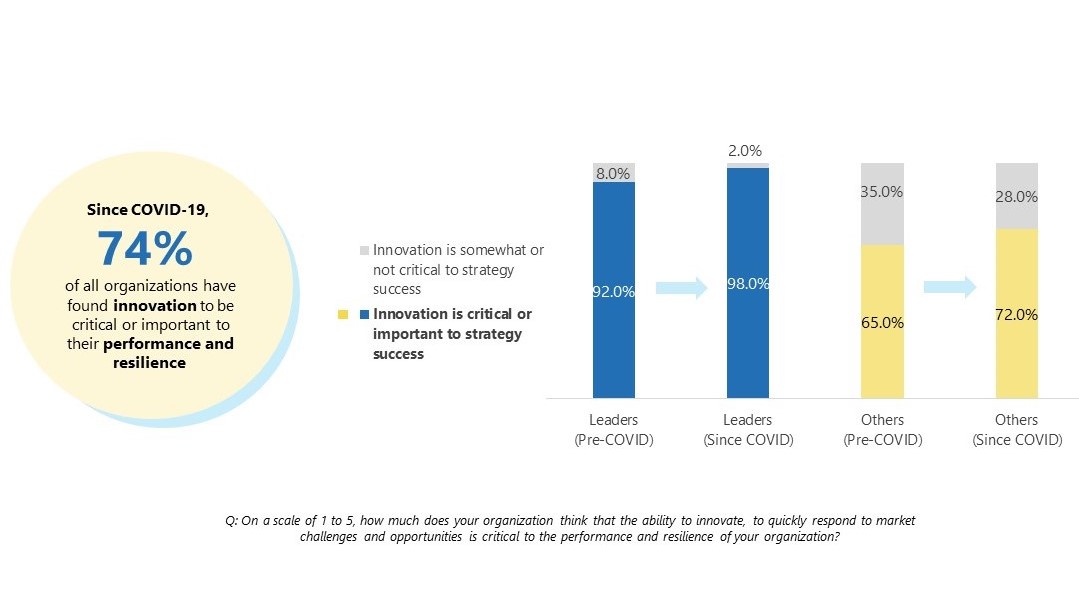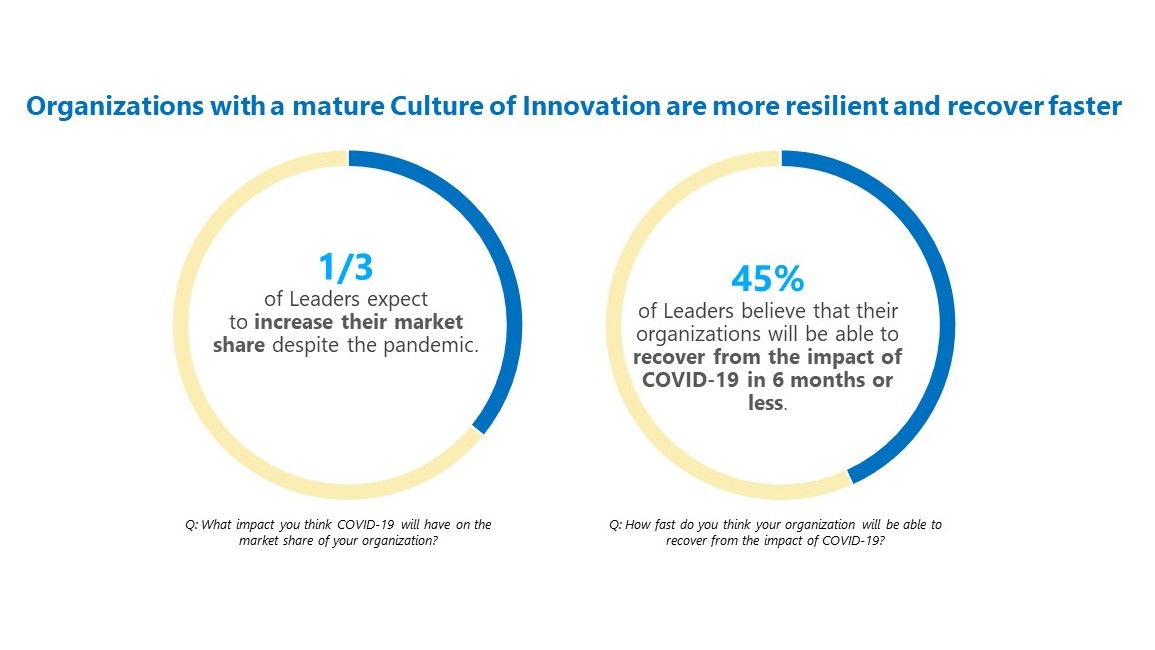

By Ahmed Mazhari, President, Microsoft Asia.
Exploring New Foods During COVID-19 Lockdowns
One of my favorite activities is cooking, but I never seemed to have enough time to do it. That changed when COVID-19 compelled everyone to stay at home and shutter eateries. That was the ideal chance to check out some new foods and flavors. Apart from a few unpleasant blunders, adopting something new has also helped me to relax, be more creative, and maintain my health.
COVID-19 Spurs Digital Transformation in Businesses
In a similar spirit, the epidemic has forced a number of businesses to reinvent themselves and test out cutting-edge problem-solving techniques. For instance, companies all around the world have embraced digital technologies to encourage staff engagement and collaboration. Two years of digital transformation were condensed into just two months, as Microsoft CEO Satya Nadella highlighted in April.
Creating a Culture of Innovation for Business Resilience in Asia Pacific
For a new report titled "Culture of Innovation: Basis for Business Resilience and Economic Recovery in Asia Pacific," which was commissioned by IDC Asia Pacific, business decision-makers and employees in the region were polled. It was found that fostering an environment where ongoing innovation can flourish is the key to long-term success and resilience.
Innovation is seen as crucial or significant to the performance and resilience of 74% of all firms. The same opinion is held by 98% of other leading firms with a developed culture of innovation.
However, the epidemic has sped up this transition towards innovation, with businesses maturing 11% in the previous six months.
\

Innovation is seen as crucial or significant to the performance and resilience of 74% of all firms. The same opinion is held by 98% of other leading firms with a developed culture of innovation.
However, the epidemic has sped up this transition towards innovation, with businesses maturing 11% in the previous six months.
Yet, why is innovation important? In a crisis, shouldn’t we reduce the danger and take precautions? Doesn’t it make more sense to save resources and burrow down as firms continue to focus on their top goals for business continuity? It turns out that forward-thinking businesses anticipate a quicker recovery from the epidemic.

One-third of Culture of Innovation leaders expect to increase market share despite the pandemic, while 45% said they expect their business to fully recover in less than six months.
What is the key to creative firms’ success?
I previously mentioned the four elements of an innovative culture: people, data, processes, and technology. To assure corporate resilience and performance in the future, even though all are necessary to the formula, let's take a closer look at the two areas identified as being the weakest: technology and people. Although organisations view digital transformation as essential to business recovery, most of them prioritise adopting new technology over creating the right staff and a positive company culture.
Businesses hastened to adopt digital technologies like cloud services, mobile technology, and video-conferencing software to keep people together despite lockdowns as business, school, healthcare, and even social activities moved to a remote model. Those who had the necessary technology and the ability to apply it had an advantage when it came to responding to the crisis.
Take Zuellig Pharma, the region's largest supplier of healthcare services. Zuellig, which had previously begun utilising Microsoft Azure cloud technologies, swiftly streamlined its everyday operations and released cutting-edge ordering and payment platforms months ahead of schedule as the pandemic expanded. This made it possible for local clients to keep their essential inventories throughout the outbreak. Workers were also able to respond by providing communities and clients with fresh, modern services. It serves as a clear example of how companies might remake themselves for the future by enabling workers to embrace change and combining the physical and digital worlds to further business goals.Take Zuellig Pharma, the region's largest supplier of healthcare services. Zuellig, which had already started utilising Microsoft Azure cloud technologies, quickly adapted as the pandemic expanded.

Similar to the Philippines, Manila Electric Co. (Meralco) started its road towards digital transformation a few years ago and correctly recognised the necessity to convert its staff. The 117-year-old company purposefully developed an environment that was more open and pushed personnel to reorganise for the digital era.
Meralco swiftly released a communication app and a rapid-testing tool in response to COVID-19 to allow personnel to track and report on their daily health condition. This made it possible for them to effectively keep the city's lights on. That's a great example of how business leaders should take use of this opportunity to encourage a growth mentality that, when combined with the right digital tools, can produce original concepts and even entirely new business models in the face of significant challenges.
Following COVID, 43% more companies have come to the realisation that training staff to accept technology is essential for effective innovation. However, as more people lose their jobs as a result of the economic crisis, the pandemic's acceleration of digitization has only widened the skills gap. Training and upskilling the workforce in digital, creative, and collaborative skills is crucial. Leaders in innovation are aware of this. Upskilling and reskilling are ranked as the top three strategies for company resilience.
Leaders might also compensate employees for innovative and long-term contributions rather than focusing solely on immediate tasks and production. Innovation must be a business value that spans all domains and levels.
The requirement for ongoing improvement and expansion
Many companies have invested a lot of time and energy into creating a mature Culture of Innovation, which is a continuous process of exponential growth. Others are progressing smoothly. It is a never-ending process. A constant feedback loop where the organisation hears from its members and encourages the development of grassroots ideas is also essential.
The best meals are produced over many years via experimentation, inventiveness, and customer-centricity, as all good chefs are aware. In a same vein, we must never stop working to improve the four areas of people, data, processes, and technology.
It is telling that 45% of innovation leaders think their current business models will become obsolete in five years. This explains their unwavering dedication to innovation and willingness to adopt new working practises. It takes work to create a culture of creativity, but like discovering a new hobby like cooking, it might be worthwhile in the long term.
All great chefs know that the best dishes come about through generations of experimentation, innovation, and improving from feedback with customer-centricity in mind. In the same way, we must not be complacent but seek constant improvement in these four areas – people, data, processes, and technology – to serve the people we are impacting better.

The resilience of businesses and economic recovery is fueled by an innovation culture
A recent Microsoft-IDC survey found that 74% of all business decision-makers in the Asia Pacific area consider innovation to be a "must," not just a "nice to have." Additionally, they think that resilience and performance both depend on innovation.Innovation is crucial for fast responding to market issues and opportunities, according to nearly all (98%) top organisations with the most developed innovation cultures; these businesses are better equipped to handle crises like the current outbreak and anticipate recovering more quickly.50% more executives foresee income growth in 2020 compared to similar organisations.
One in three business owners plans to increase their market share despite the epidemic.
According to 45% of business professionals, the COVID-19 tragedy will be over in six months or less at the latest.







0 Comments